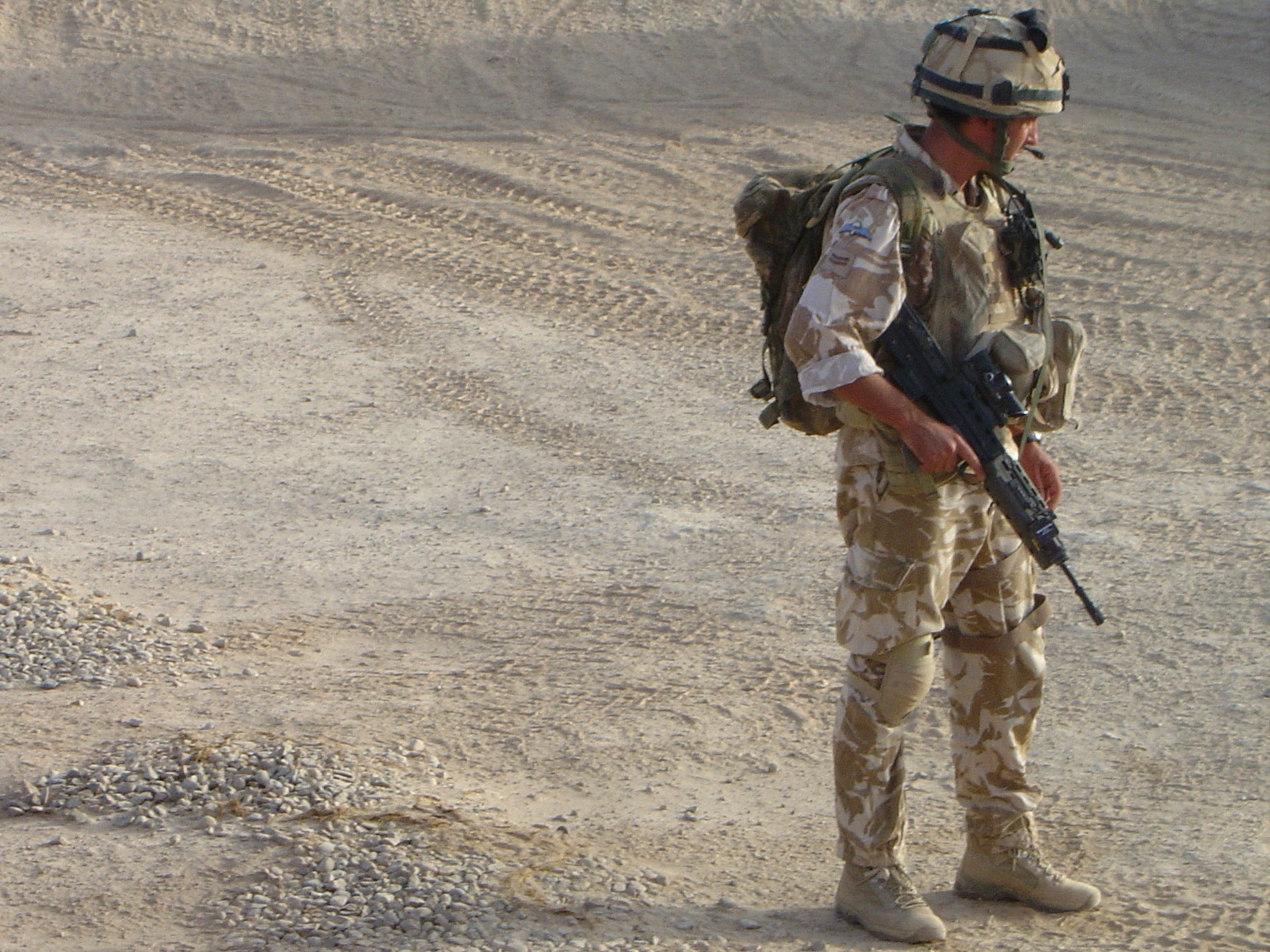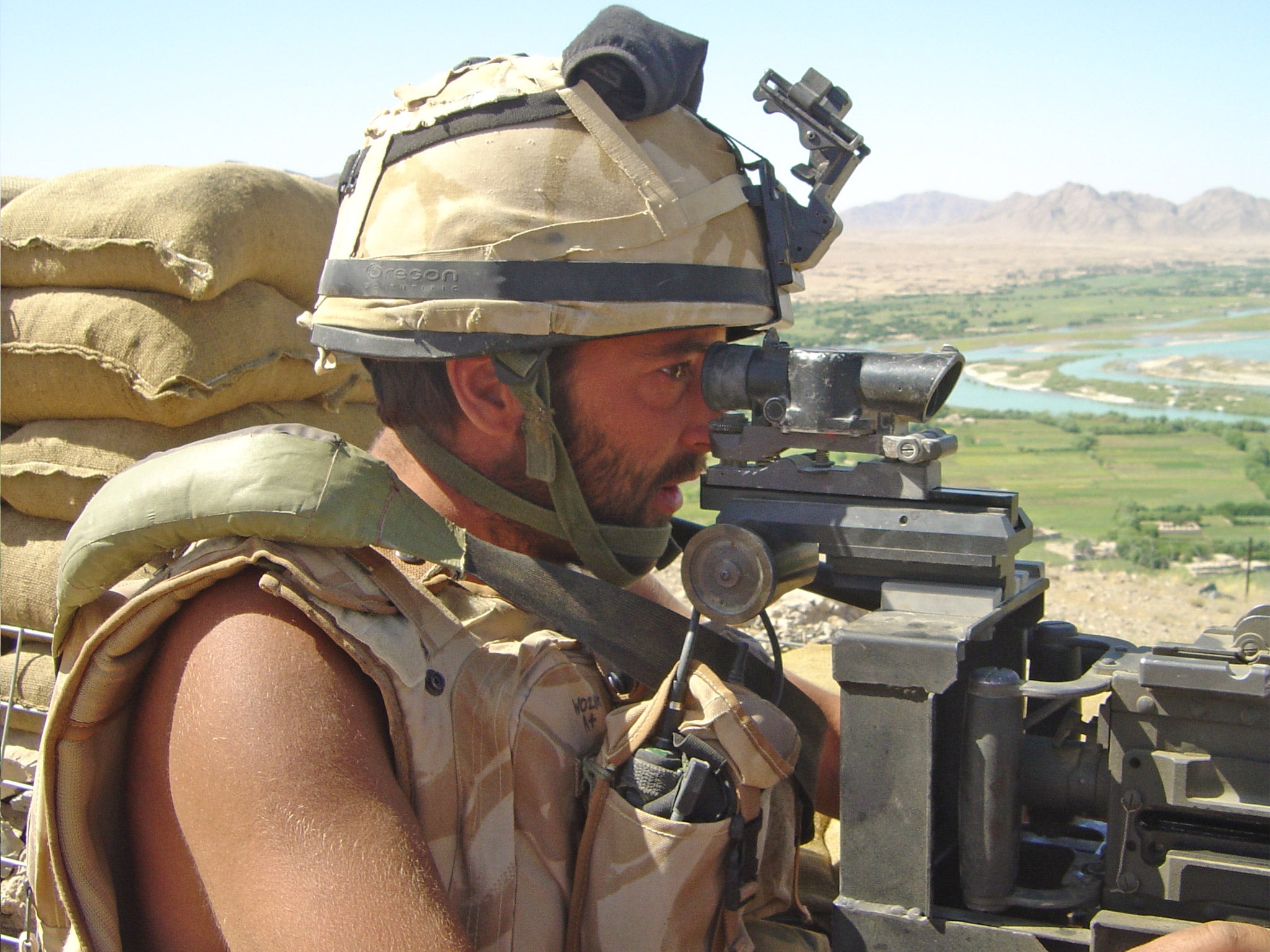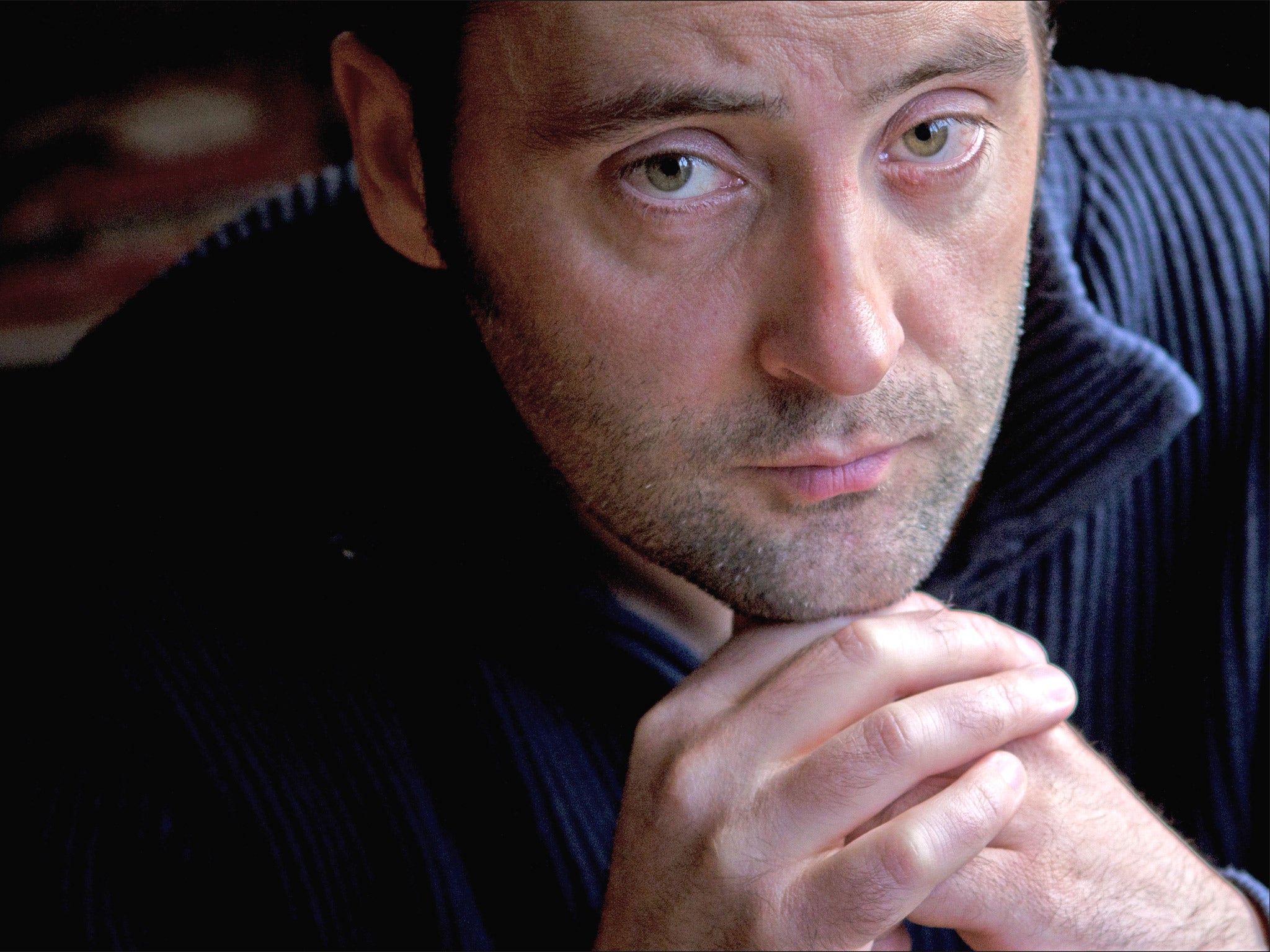Broken by war: the Army reservist still battling with combat stress - and worried about declining mental health support for the growing ranks of part-time soldiers
‘Most people soon forget about their nightmares … I don’t’

Your support helps us to tell the story
From reproductive rights to climate change to Big Tech, The Independent is on the ground when the story is developing. Whether it's investigating the financials of Elon Musk's pro-Trump PAC or producing our latest documentary, 'The A Word', which shines a light on the American women fighting for reproductive rights, we know how important it is to parse out the facts from the messaging.
At such a critical moment in US history, we need reporters on the ground. Your donation allows us to keep sending journalists to speak to both sides of the story.
The Independent is trusted by Americans across the entire political spectrum. And unlike many other quality news outlets, we choose not to lock Americans out of our reporting and analysis with paywalls. We believe quality journalism should be available to everyone, paid for by those who can afford it.
Your support makes all the difference.At two o’clock in the afternoon, Jake Wood releases the three heavy locks that protect his flat, which he calls his “gilded cage”. The door opens to reveal an unshaven face and tired eyes. Wood can’t remember the last night he slept well. It takes him several hours each morning to face the day.
“Most people forget what their nightmares are about after a few minutes,” he says inside his flat, where he lives alone. “I don’t. They pretty much always involve killing – either people being killed or me killing people.”
A little over six years ago, Wood, who is 40 and lives in London, saw life through the sights of a heavy machine gun from a remote hill-top hut in Afghanistan. He says he and his comrades kept score of downed Taliban militants on a wooden beam.
“But it doesn’t matter how many you’ve killed,” he adds. “If you’ve killed, you’ve killed.” The horror of friends dying in front of him would further fuel his nightmares.
Weeks later, Wood parachuted back into his other life – as an analyst at an investment bank in Canary Wharf in East London. He describes himself then as “a suited employee of a bank masquerading as a soldier, or was it the other way round?” At his desk, his increasingly dissonant lives became unbearable. As bosses fired off new, alien acronyms, a pre-crash banking industry revealed to Wood a lack of everything he felt had sustained him in the army – honour, trust, purpose.
“I was surrounded by people who had no idea what I’d been doing and seeing, and probably didn’t care,” Wood says. “I started having the same reaction to stress as I was having in Afghanistan. This grey fog would come down and I’d get really stressed until my brain said, that’s enough, and I stared blankly into space. I’d shut down.”

There are new reasons you should worry about Wood. He suffers from post-traumatic stress disorder (PTSD), a debilitating mental condition once known as shell shock that can affect every aspect of a veteran’s life. Last weekend, the Ministry of Defence launched a £3m recruitment drive for more than 10,000 new soldiers as it tries desperately to boost the Army Reserve, formerly known as the Territorial Army, from 19,000 troops to 30,000 by 2020. At the same time, it is cutting the regular army from 102,000 to 82,000 troops.
Part-timers are becoming central to a more integrated (and cheaper) fighting force. Senior military figures worry about the impact of such changes on our defence capability; the head of Britain’s Armed Forces, General Sir Nick Houghton, said last month that the military risks becoming a “hollow force”. For Jake Wood, and for leading experts in military mental health, what’s more critical is the effect of the changes on the well-being of reservists – and a level of support that they say is falling.
“If a larger reserve force is even more liable to be called out and used for real, then fine, those recruits have chosen that path,” says Wood, who has written a book, Among You, about life in and out of the Honorable Artillery Company, an Army Reserve regiment based in central London. “But the Army has got to be prepared for [a higher level] of PTSD, because that will be the result if they don’t look after these people.”
Wood’s concern has foundation. Professor Neil Greenberg is a retired soldier and the head of military and veterans’ health at the Royal College of Psychiatrists. He is also co-director of the Academic Centre for Defence Mental Health at King’s College London. Studies there involving thousands of troops have revealed that deployed reservists are significantly more likely to have mental-health problems, including PTSD, than their full-time counterparts. A little over 4 per cent of regulars suffer from PTSD, compared with 7 per cent among reservists.
Anecdotal evidence suggests that the number is higher still among reservists who see the most serious action. Wood says three of the nine men deployed from his unit to Helmand Province in Afghanistan have so far been diagnosed with PTSD.
Subsequent studies at King’s set out to establish why reservists are more vulnerable. “One factor was that they felt their family and social networks were not receptive to them being in the military,” Professor Greenberg explains. “Their marriages and relationships were worse than regulars’, whose families are more used to them being in the military. They also felt that when they came back they had been completely cut off by the military.”
None of this is news to Wood, who never found a band of brothers at an investment bank. With each return to civilian life after two tours in Iraq in 2003 and 2004, and Afghanistan in 2007, reconciling his civilian and army existence became more difficult. His love life was in turmoil, the City was about to implode, and colleagues didn’t know how to deal with him.
“There is almost a fascination [with you] when you first come back but it doesn’t last long,” he recalls. “First you get questions – some intelligent, some stupid and some just ghoulish – then by the afternoon it’s like, OK, here’s a business document. It was as if I’d never left and that was incredibly disorienting. That feeling of isolation, alienation and dislocation was heightened by what I found out later was PTSD.”
Despite already having suffered dark and even suicidal thoughts, a desire to escape drew Wood back towards battle. His background brought further pressure. He grew up in Oxfordshire in a family of war heroes whom he wanted to impress. He had become a reservist so that he could also enjoy a civilian life and, he admits, a civilian salary. Civilian pay is matched during a reservist’s deployment if it is higher than military pay, which varies greatly (basic salaries for regular soldiers range, for example, from around £17,000 a year for a private to around £40,000 for an officer).

Early success in both worlds had helped him to defeat a childhood stammer that has since crept back. When things got tough, he says, this only amplified “a siren song calling me out… I watched my hand go up. I wanted to return to a world where I would have meaning in my life.”
Reservists are expected to commit to up to 27 days of evening, weekend and camp training a year outside their civilian jobs. The MoD says recruits can expect to be mobilised within five years. Their tours of duties vary in length (including training for Afghanistan, Wood was away from his civilian job for more than a year).
He says reservists who wish to be deployed make it known to their regiment that they would not protest should they be compulsorily mobilised. When the call comes, the soldier may choose not to tell their employer – or even family – that they have, in effect, volunteered.
Before the 2003 invasion of Iraq, any sort of mobilisation was relatively rare for the Territorial Army, which was formed as the Territorial Force in 1908, originally for home defence in wartime. It was renamed the Army Reserve in 2011. “It used to be a club you joined to give you extra options like adventurous training,” says Professor Greenberg, who was a reservist long before 9/11 transformed the armed forces.
TAs were dismissed as “weekend warriors” or, as Professor Greenberg remembers, “Stabs” (stupid TA bastards). “Now I think if you ask regulars what they think of reservists, they would say they utterly rely on them.”
Wood suffered his greatest trauma in Afghanistan. He is still haunted by extreme guilt as a killer and as a survivor. He endures flashbacks as well as nightmares, and a hypervigilance that turns his civilian world into a potential warzone. He does not want to reveal where he lives in London because he fears extremists might target him as they targeted Lee Rigby, the soldier murdered in Woolwich last May. He only feels safe inside his gilded cage.
“I’m constantly on alert for danger,” he says while fiddling nervously with an electronic cigarette. “If I’m on the Tube, I can’t sit down because the banks of seats mirror the arrangement we’d have on the Chinook helicopter. With the motion, I can feel myself going back there. I’ll watch everyone who gets on that carriage and if I’m suspicious I will stand as close as I can to them, even though it’s fucking terrifying me, so that I can be on them if they start reaching for a trigger. I realise that this is not normal thinking.”
Combat Stress is a mental-health charity struggling to meet demand. It has more than 5,500 veterans on its book and adds a further 1,300 each year. The charity, founded in 1919, finds that veterans take on average 13 years to seek help after they are discharged. That window has shrunk to just 18 months among veterans of Afghanistan as the urgency of their plight grows along with their awareness of mental health. “Numbers are through the roof while resources are tighter by the month,” says Andrew Cameron, the charity’s chief executive. He recognises the patterns in reservists that Professor Greenberg has studied and warns: “If you’re going to boost them to 30,000, you better get this bit right because otherwise you’re storing up a big problem.”
After three months at the bank, Wood took sick leave and was referred to a psychiatrist. He later won compensation and receives an army pension. He says the psychiatrist treating him on behalf of the MoD covered all of London and the south-east of England. Figures obtained by the Herald newspaper in Scotland at around the same time (2007) suggested the MoD had reduced its number of psychiatrists from 25 to 15 nationally in the five years since 9/11, just as the “war on terror” placed the armed forces under critical stress.
In an MoD memo leaked last October, senior officers blamed obstacles including “a reported (if unproven) increase in mental health issues” for sluggish reservist recruitment. Yet Professor Greenberg says he has seen evidence that the MoD has continued to cut mental-health support. “It doesn’t make any sense. If you know there are increased risks among reservists then why not respond? You’re also shooting yourself in the foot. If we are going to rely more on reservists in future conflict, we need to make sure they’re ready for the job.”
The MoD says its approach to welfare among reservists has improved since Wood’s time but admits that psychiatrist numbers have dropped by more than 15 per cent in the past five years. It disputes the figure of 15 psychiatrists reported in 2007, however, saying the true number is now 25, down from 30 five years ago. In total, it says, it employs “in the region of 250 mental health professionals” – a figure that was “in the same region” five years ago.
“We have invested £7.4m in improving our mental-health services to ensure the best possible help is available for everyone who needs it, whether they are a reserve, regular or veteran,” a statement read. “We will continue to ensure that support is available for all service personnel including reservists who are suffering mental health problems.”
Wood sounds a louder alarm over the loss of psychiatrists. “Even setting aside the obvious moral issues about duty of care, such cuts would also be a fool’s economy,” he writes in an email after meeting The Independent. “They might save the Treasury some drops in the ocean, but exponentially more would be lost to the economy as a whole, as unsupported and blighted lives withdraw from the world around them – and the workplace.”
Wood never returned to the bank. He thinks that writing his book, which draws on stacks of his journals, has been cathartic, but he remains unwell. Taking a break from his “relentless” therapy, he resolves to get out more, find a girlfriend and start a family.
“The challenge for me now is to turn an existence into a life,” he explains. In the meantime, “I need some breathing space. And I don’t mean people leaving me alone – that would be awful – all I want now is…” He thinks. “I just want some peace.”
Combat Stress, the veterans’ mental health charity, is at combatstress.org.uk.
‘Among You: The Extraordinary True Story of a Soldier Broken by War’, by Jake Wood (Mainstream; £8.99), is available in paperback and released for Kindle on Friday
Join our commenting forum
Join thought-provoking conversations, follow other Independent readers and see their replies
Comments